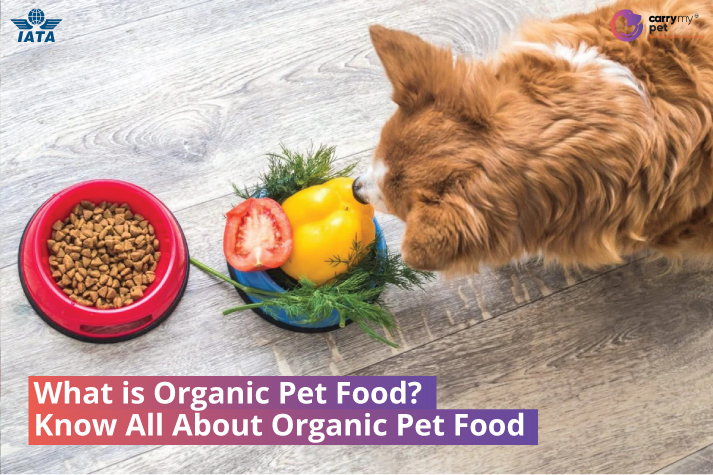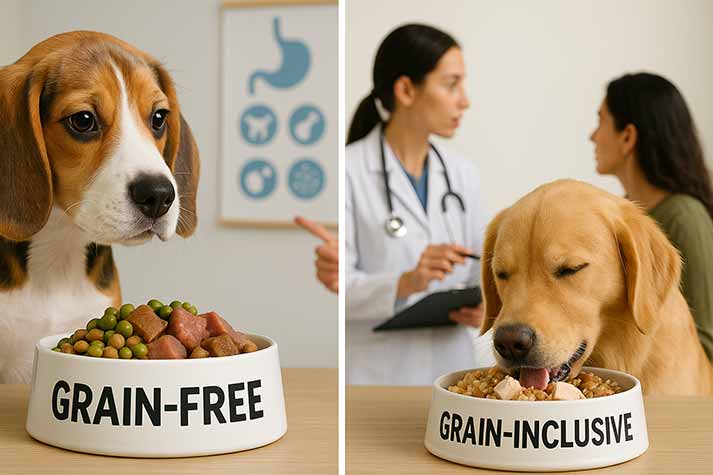
23 Oct
What is Organic Pet Food? Know All About Organic Pet Food
Marketing refers to the promotion process of a good or service to gain potential
clients or customers. The modern marketing machine is well-oiled and efficient,
often so much so that it can sell an idea which is not necessarily true.
Therefore, it is essential to conduct research into the facts; not everything
said in the process can be taken as gospel. If something is too good to be true,
it probably isn’t as great as a campaign might lead you to believe. One such trend which has been growing in the public consciousness is the term
“organic”. Organic is a term used to classify and provide a
description for food products, such as food for humans and feed for livestock.
This includes a wide variety of foodstuffs; meat, multi-ingredient processed
items, and products which are grown or produced in accordance with the rules and
regulations of the government of a country. As an example, the United States
Department of Agriculture (USDA) splits it across three categories; organic
plants, organic meat-producing animals, and organic multi-processed food. For organic plants, the guidelines relate to: For organic meat-producing animals, the guidelines include: For organic multi-ingredient processed foods, the guidelines relate to the
exclusion of artificial flavours, colours, or preservatives; however, some
approved non-agricultural ingredients may be included. According to the Food and Drug Administration (FDA) in the U.S.A, “There
are no official rules governing the labelling of organic foods for pets at this
time, but the USDA is developing regulations dictating what types of synthetic
additives, such as vitamins and purified amino acids, may be used in pet foods
labelled as organic.” To summarize this short quote, it basically means
that you can still see the word “organic” on foods which are not
necessarily being produced with fully organic practices, which may or may not
contain synthetic additives. The fact of the matter is, the word organic, its
use and what count as ‘organic’ are subject to change, depending on
the government classification of foodstuffs and the definition of
“natural”. Coming back to marketing, it is curious how organic foodstuffs have seen an
extreme rise in popularity amongst the public when it should supposedly be a
given that everybody wants clean and unaltered foods; both for human beings, and
their pets. If the definition and classification of organic foodstuffs are
subject to change upon further research, the question is, is organic food any
better than regular, “inorganic” foodstuffs for your pet? The truth is, to this day, there is no link found between the consumption of
organic produce and the increase in the nutritional value of said consumption.
The research conducted on humans has so far been inconclusive, with no notable
difference in the nutritional values between food produced in the traditional
manner, and food produced using organic practices. As such, while there might be
an incremental increase in nutritional value, this isn’t exactly better
for the health of your pet, as the traditionally produced foodstuffs meet your
pet’s daily minimum required nutrients, and often exceed it. So, a higher
concentration of one or many specific nutrients won’t exactly lead to
better health for your pet. To identify the impacts of organic versus conventional food production methods, a
thorough, well- researched test is required across two controlled groups, in
which any advantages or disadvantages in the consumption of organic foods may be
identified. As the government themselves say, the data is limited on the subject
for humans, let alone pets, so as of now, it may be folly to believe the
well-oiled marketing machine. If anything, growing your own produce, ensuring
your meat is sourced properly and is free of any contaminants, and making your
own ‘organic’ food is the most viable and reliable option, as,
without any further research or evidence, results will remain inconclusive. The
organic label on the packaging can hardly be an all-encompassing guarantee of
quality when any research pointing to the same has been inconclusive.Organic Plants
Organic Meat-Producing Animals
Organic Multi-Ingredient
Processed Foods






AUTHOR’S BIO
Carry My Pet
Passionate pet enthusiasts and globetrotters, dedicated to easing furry friends' journeys worldwide. Penning tales of compassion at CarryMyPet, where every relocation is a tail-wagging adventure.